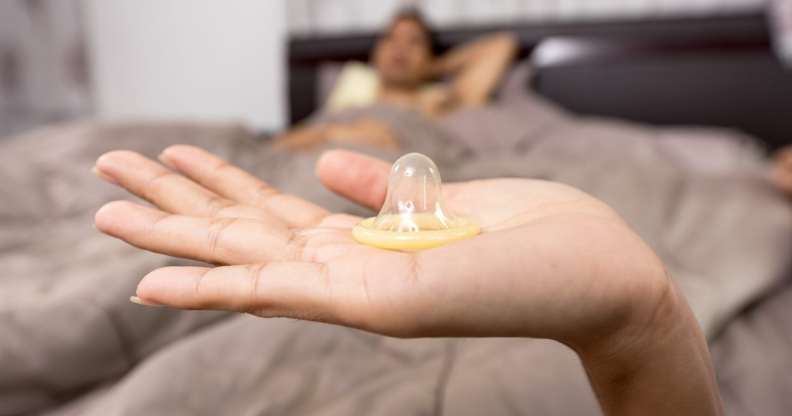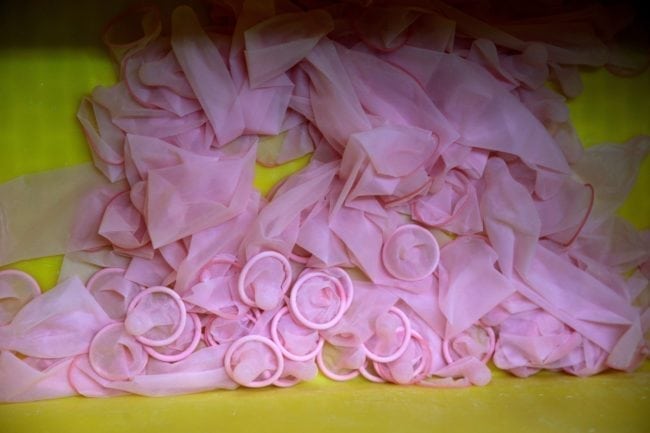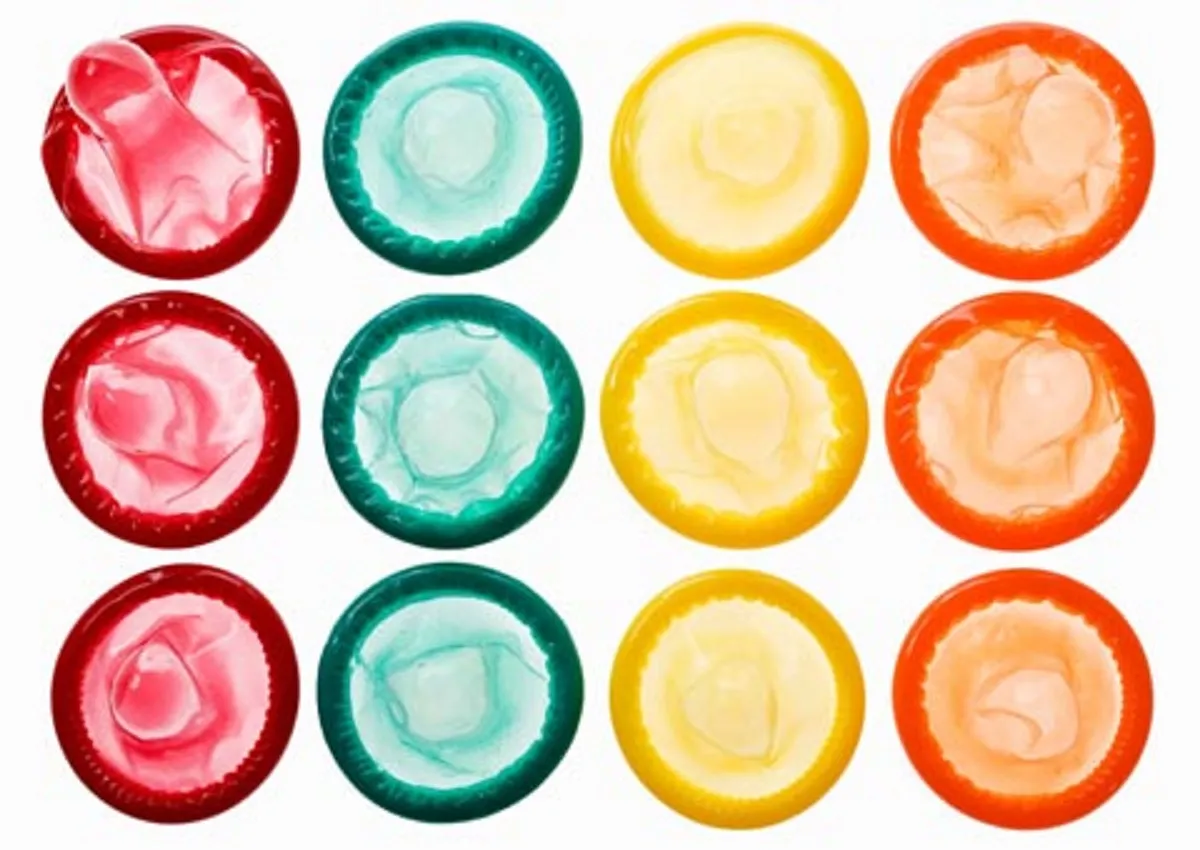Self-lubricating condom set to change sex forever

A better version is coming, apparently (Pexels)
A self-lubricating condom may be about to revolutionise the world of sex.
The contraception, which researchers at Boston University created off the back of a $100,000 grant from the Bill & Melinda Gates Foundation, could reduce the spread of sexually transmitted infections and unwanted pregnancies.
After all, people are more likely to wear a condom that makes sex feel good, and this prophylactic is reportedly less likely to break while you’re getting intimate than a condom you have to lube up yourself.

With the help of a polymer coating which took three years and around 1,000 different formulations to develop, the new condom is able to take moisture from your sexual partner on contact, which binds to its coating.
This forms “a thin layer of water on the surface which makes it slippery,” lead researcher Mark Grinstaff told Fast Company.
He said that this lubrication “binds to the surface of the latex condom and does not come off.”
Grinstaff, a professor of biomedical engineering and chemistry who co-authored the study—which has been published in British journal Royal Society Open Science—told BU Today: “Preventing the spread of HIV and other diseases is critically important.

“That really was the driving force for creating new technology here.”
The study indicates that this polymer ensures that the condom stays lubricated for up to 1,000 thrusts, many more than what researchers defined as “typical intercourse,” which they said lasts “about 100–500 thrusts.”
Unlike normal condoms, these new creations are also able to hold their lubrication while in large bodies of water—which is good news if you like having sex in the shower or bath.
Though the condoms have not been tried out during sex by anyone yet, a touch test during the study revealed that 73 percent of respondents preferred the new prophylactic to others, and 85 percent thought it was more slippy.
Stacy Chin, who co-authored the study, is also the CEO of start-up HydroGlyde Coatings, which aims to bring the product to market within the next two years.
She said: “Poor lubrication encourages condom misusage,” adding that scientists know if they can “improve comfort for users, we can enable them to wear condoms more consistently and appropriately, preventing STIs and unplanned pregnancies.”

Grinstaff reported that “those in our survey who don’t typically use a condom said they would consider using a condom if it stayed slippery like this.”
He added that there hadn’t been a significant development in the field for decades, explaining: “Glow-in-the dark condoms and flavoured condoms are clever gimmicks that don’t help performance.
“I think we can do better.”

We can certainly do better than rewashing and using our condoms, which is what the US government felt the need to warn the public against doing earlier this year.
The Centres for Disease Control and Prevention (CDC)’s Division of STD Prevention tweeted an apparently timely reminder regarding the public’s condom use in August, saying: “We say it because people do it: Don’t wash or reuse #condoms!
“Use a fresh one for each #sex act.”

